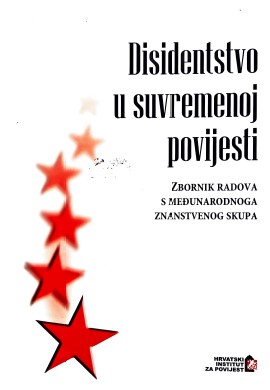Jugoslovenska politička emigracija i disidentstvo u Jugoslaviji (Podrška Saveza “Oslobodjenje’’ demokratskoj opoziciji)
The Yugoslavian Political Emigration and Dissidence in Yugoslavia (The support of the League “Oslobodjenje” for the democratic opposition)
Author(s): Mira Radojević
Subject(s): Civil Society, Political history, Government/Political systems, Politics and society, Post-War period (1950 - 1989), History of Communism, Migration Studies
Published by: Hrvatski institut za povijest
Keywords: Yugoslavia; emigration; democracy; democratic evolution; dissidents; press; public opinion; national movements;
Summary/Abstract: In the history of the postwar Yugoslavian emigration, most often formed on antidemocratic, anti-Yugoslav, anti-Serbian, anti-Croatian, monarchist, or antimonarchist lines, and generally right-wing in orientation, the League “Oslobodjenje” [freedom] belonged to the smallest emigrant grouping – democratic and pro-Yugoslav. Struggling toward the democratic evolution of Yugoslavia, the League insisted that to achieve freedom from one party rule and economic, cultural, and political backwardness Yugoslavia needed to rely on its own political and national strengths. Help from abroad, from emigration, could have a secondary importance. Led by such principles, the League through its organ Naša reč supported every instance of critical, oppositional thinking in the country. For the longest time the most attention was given to Milovan Djilas, not only the first, but for many the only ‘true’ Yugoslavian dissident, but afterwards to many others who over several decades came into conflict with the Yugoslavian authorities, state and party leadership. Among these a particular place is accorded to Mihajlo Mihajlov, “dissident no. 2,” as he is often called. Assistance to dissidents in Yugoslavia became more prominent in the time after Josip Broz Tito’s death, when the dissident movement began to grow. Even though it usually could not be direct and concrete, this help was seen in those things that were most important to every dissident, the ability to make public their political views and get domestic and international attention. In this sense Naša reč was the most important paper of the Yugoslavian democratic dissidents.
Book: Disidentstvo u suvremenoj povijesti
- Page Range: 271-289
- Page Count: 19
- Publication Year: 2010
- Language: Serbian
- Content File-PDF

